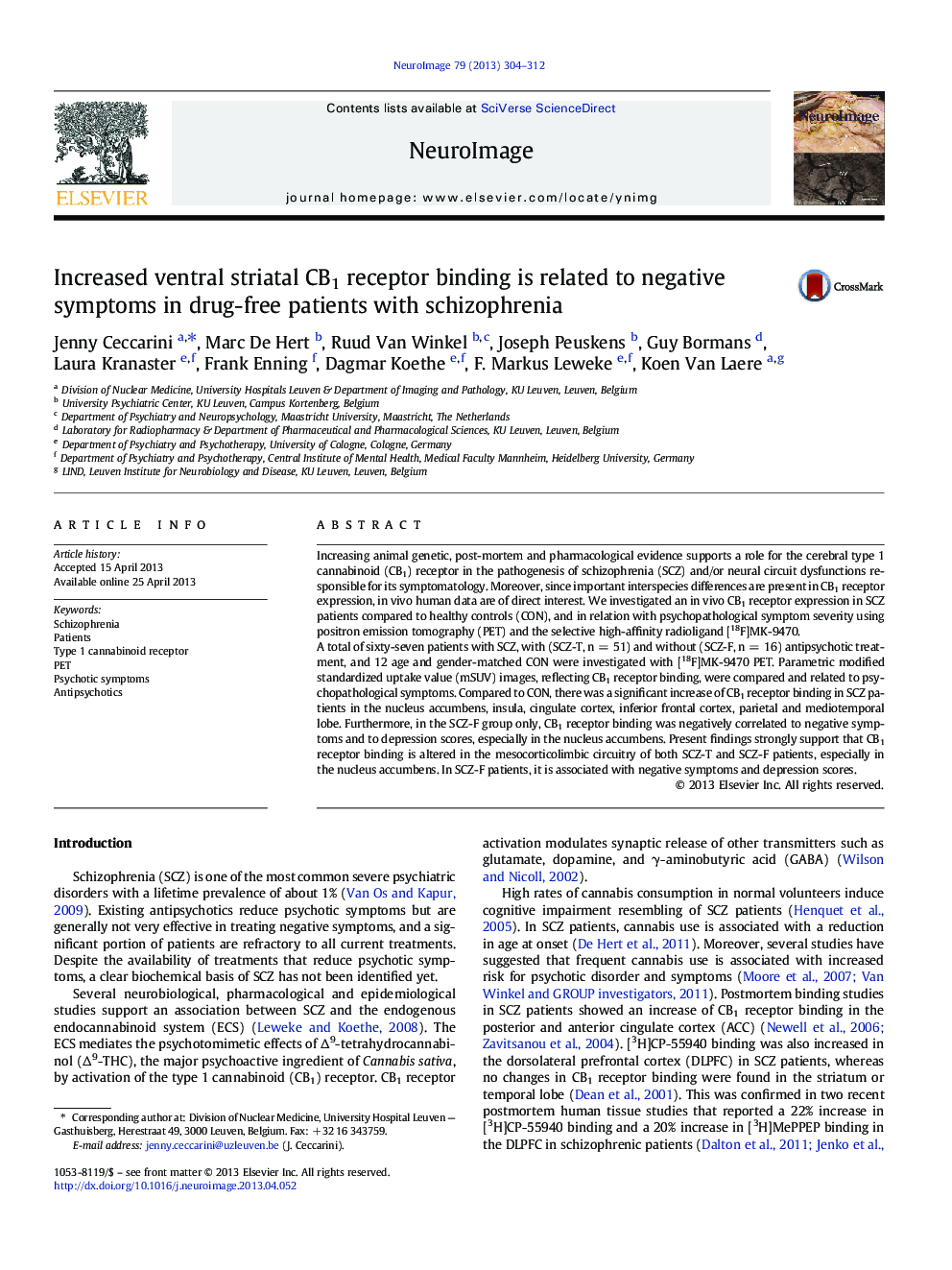| کد مقاله | کد نشریه | سال انتشار | مقاله انگلیسی | نسخه تمام متن |
|---|---|---|---|---|
| 3071984 | 1580925 | 2013 | 9 صفحه PDF | دانلود رایگان |

• This is the first CB1R PET study investigating more than 60 SCZ patients.
• This is the first CB1R PET study including patients with and without antipsychotics.
• CB1R is increased in patients with SCZ both with and without antipsychotics.
• CB1R binding is increased in selected mesocorticolimbic regions of SCZ patients.
• Increased striatal CB1R binding is related to negative symptoms.
Increasing animal genetic, post-mortem and pharmacological evidence supports a role for the cerebral type 1 cannabinoid (CB1) receptor in the pathogenesis of schizophrenia (SCZ) and/or neural circuit dysfunctions responsible for its symptomatology. Moreover, since important interspecies differences are present in CB1 receptor expression, in vivo human data are of direct interest. We investigated an in vivo CB1 receptor expression in SCZ patients compared to healthy controls (CON), and in relation with psychopathological symptom severity using positron emission tomography (PET) and the selective high-affinity radioligand [18F]MK-9470.A total of sixty-seven patients with SCZ, with (SCZ-T, n = 51) and without (SCZ-F, n = 16) antipsychotic treatment, and 12 age and gender-matched CON were investigated with [18F]MK-9470 PET. Parametric modified standardized uptake value (mSUV) images, reflecting CB1 receptor binding, were compared and related to psychopathological symptoms. Compared to CON, there was a significant increase of CB1 receptor binding in SCZ patients in the nucleus accumbens, insula, cingulate cortex, inferior frontal cortex, parietal and mediotemporal lobe. Furthermore, in the SCZ-F group only, CB1 receptor binding was negatively correlated to negative symptoms and to depression scores, especially in the nucleus accumbens. Present findings strongly support that CB1 receptor binding is altered in the mesocorticolimbic circuitry of both SCZ-T and SCZ-F patients, especially in the nucleus accumbens. In SCZ-F patients, it is associated with negative symptoms and depression scores.
Journal: NeuroImage - Volume 79, 1 October 2013, Pages 304–312